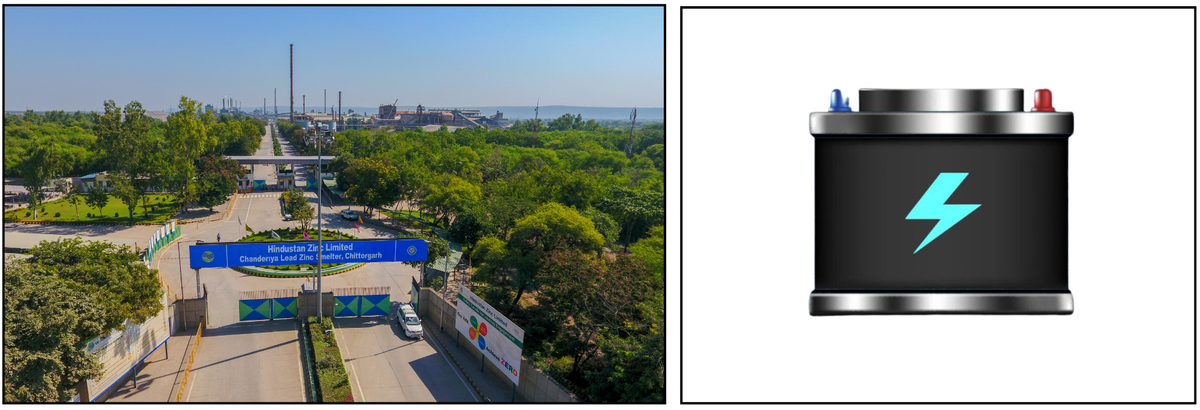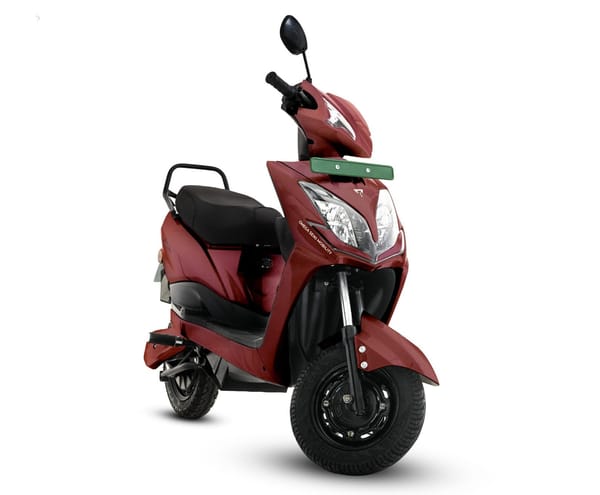Zinc Battery technology

Hindustan Zinc sees early breakthrough in the research of next-generation zinc-based battery technologies. The research targets delivering higher energy efficiency, improved safety and longer operational life. The company is pioneering emerging zinc battery technology to support the ongoing clean energy transition.
Zinc has emerged as a powerful alternative to lithium owing to its abundance, stability and cost effectiveness. While the lithium market continues to face supply constraints and rising costs, zinc-based systems present a more economical, and geopolitically secure pathway for India’s energy ambitions. Zinc-based batteries are increasingly recognized for their superior safety (non-flammable), long cycle life, wide temperature operability, and recyclability. They deliver dependable backup power for 3 to 72 hours, utilize non-hazardous raw materials and have a greenhouse gas (GHG) footprint nearly six times lower than conventional technologies. The proven use of zinc-based materials in high-demand sectors such as aerospace, marine, renewable energy, data centers, 5G network and mission-critical infrastructure further reinforces their reliability and adaptability.
Towards this end, Hindustan Zinc has collaborated with the Indian Institute of Technology (IIT), Madras and the Jawaharlal Nehru Centre for Advanced Scientific Research (JNCASR), Bengaluru to develop sustainable energy storage solutions. Early-stage research findings indicate potential for significant technological advancements and future commercial scalability. The world is witnessing a rapid evolution in the battery industry and zinc-based batteries have the potential to transform the sustainable energy storage solutions market.
Under the MoU signed with JNCASR in August 2024, Hindustan Zinc is advancing the development of Zinc-Ion batteries. Commenting on the development Prof. Prem Senguttuvan, said, “The team is focusing on novel zinc anode formulations, coupled with advanced electrolytes. We have made noteworthy progress in electrode/electrolyte interface engineering, which is very encouraging”.
Complementing this, a second collaboration with IIT Madras, formalized in October 2024, is targeting the design of a 1 kWh rechargeable Zinc-Air battery module using a 6/12-cell stack. The project, led by Professor Aravind Kumar Chandiran from the Department of Chemical Engineering, prioritizes rechargeability, structural integrity, interface durability and overall battery longevity. Speaking on the development, Prof. Chandiran, highlighted, “These batteries are an emerging solution for electric vehicles, grid-scale energy storage and consumer electronics”.
According to a recent BloombergNEF report, the global energy storage market is projected to expand at a 21% CAGR, reaching 442 GWh by 2030. Hindustan Zinc’s ongoing innovation efforts are well-aligned to meet this growing demand while enhancing India’s energy independence.
Commenting on the development, Mr. Arun Misra, CEO - Hindustan Zinc Limited, said “The battery segment is primed for innovation as the world shifts towards long-lasting and environmentally friendly energy sources. We at Hindustan Zinc, are poised to play a key role in supporting this transition through the production of critical metals like zinc. Our collaborations with two of India’s premier research institutes reflect our commitment to advancing cutting-edge innovations that can redefine the future of energy storage. Batteries have the potential to accelerate this shift through energy storage and we aim to drive responsible innovation and long-term impact across the value chain.”




